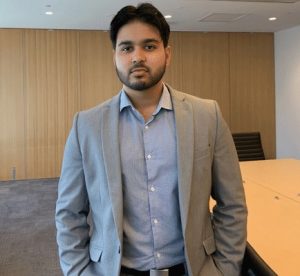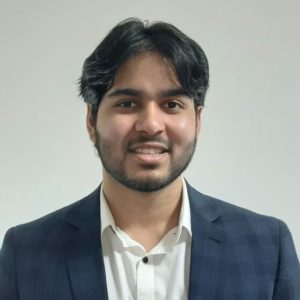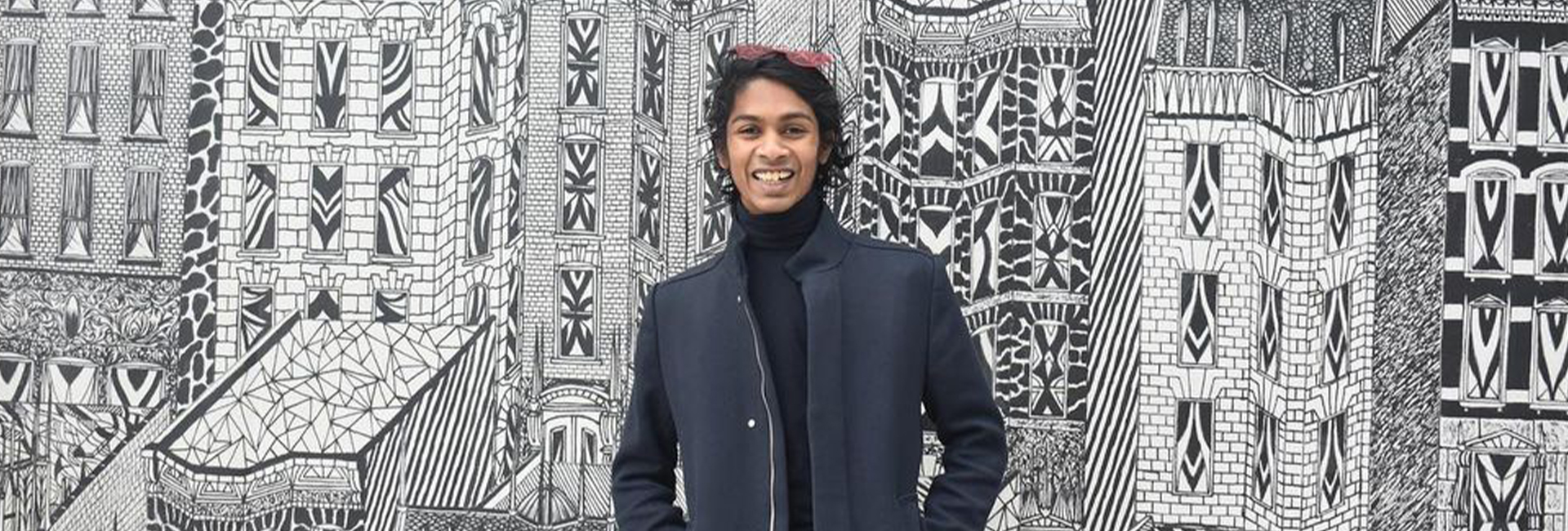(April 13, 2023) Aryan Verma arrives at our virtual meeting dressed to the nines, in formal attire. “I’m an investment banker,” he says, when I ask him about it. At 20, Aryan, who is a student at The University of Sydney Business School, juggles two internships alongside. “It’s pretty full on,” Aryan admits but since he also hopes to follow in the footsteps of Warren Buffet, Ray Dalio, Bill Ackman and Chase Coleman who began their own firms at the age of 26, he’s got a lot to do. He’s already the founder of Young Entrepreneurs Connect, which has chapters across Australia and the US and the Managing Director (Australia) at Beyond the Bounds, an organisation that addresses mental health concerns among GenZ. He also works with the Newland Global Group, which works to leverage bilateral relations between India and Australia.
Growing up in Sydney
Aryan’s dad moved to Australia in 1996 and when he married in 2001, his wife joined him there as well. Aryan was born two years later, in December 2002. “I had a pretty traditional upbringing,” he says, during his interview with Global Indian. His parents wanted him to do medicine, and his own academic record was in line with that. He studied at Sydney Boys’ High School, part of the prestigious AAGPS network, the equivalent of the ‘Great Nine’ or ‘Clarendon Schools’ in England. Growing up between two cultures and continents, Aryan Verma had the unique opportunity to learn from diverse perspectives and experiences, which has undoubtedly shaped his entrepreneurial spirit and success today. He was offered a partial scholarship to Harvard University, which he turned down because the tuition fee was still out of reach.
When he was around 14, Aryan discovered an interest in finance and investment banking, and began teaching himself real estate valuations. He would even send out his estimates of listed unit blocks to see how close he was to the offer price. “It’s not really a field you can enter so young, though, so I switched to startups and entrepreneurship.” By the time he turned 16, he was “ahead of the curve,” he says. “I had observed that an entrepreneurial mindset is beneficial for every industry, no matter what your career is and I wanted to spread that message.”

Aryan Verma, founder, Young Entrepreneurs Connect
Young Entrepreneurs Connect
That year, he started Young Entrepreneurs Connect and held the organisation’s first event just before Covid-19 hit – YEC collaborates with universities to help them build their entrepreneurship programmes. It did well almost immediately, with about 60 people attending their first event, and speakers from companies like Deloitte, Mercedes and a handful of nonprofits. “We wanted to give high-schoolers clarity about career options and that there is always room for them to be entrepreneurs.” For a sixteen-year-old, this is no joke. It meant patience, lots of cold emailing and aggressive social media campaigning. At the end of the event, they recruited more students to the organisation.
The pandemic hit soon after and YEC hopped onto the Zoom bandwagon. It allowed them to expand to the US fairly quickly. “Our community events were a lot stronger in the US, we started working with societies, clubs and external events.” I ask him about his process – “a blanket search for major universities and their entrepreneurial efforts for students,” he replies. The cold emails worked, as Aryan suspected they would, because “we were free labour, basically.” Today, the US chapter accounts for more than 50 percent of their 4000-strong community and includes collaborations with several universities.
What YEC does
YEC Talks are the organisation’s flagship events, and are held both virtually and in-person through the year. Experts from various industries are invited to discuss trends, career trajectories and entrepreneurship efforts, creating a bridge between students planning their careers and professionals who are the top of their fields. They try to keep the panels diverse, including company founders, executives, investors, academic and politicians.
There are also the YEC podcasts, which are also available on YouTube and lunchtime school clubs, called ‘interschools’. The later helps to create engaging spaces for students, giving them supplementary learning and allowing students to pick their own leaders and members. The YEC syllabus, which Aryan says is being developed still, currently includes topics from business knowledge to startup skills, career insights and advice on how to make investments. These clubs also compete against one another in business and startup competitions. In the YEC Hustler’s List, the organisation showcases young, talented entrepreneurs in Australia.


Non-profit and volunteer-led
YEC runs on a non-profit model, with all their services provided for free. How does this work, and why choose this model? Volunteers join the organisation to work on real, impactful projects that provide them the opportunity to build relationships and real-world skills – it’s prepping, really, for their careers. Extracurricular activities play an important role in securing internships and graduate jobs. “When I was 16 and 17, I wouldn’t attend any event that was charged, even if it was cheap. Kids don’t have a lot of money and don’t want to spend on events.” Student-led and student-run remains their philosophy.
Beyond The Bounds
Then, in 2022, Aryan discovered Beyond the Bounds, an organisation founded by Indian student Vidhi Yadav, who had just moved to Australia to study. Yadav was looking to expand her western market when Aryan reached out for a collaboration. With his knowledge of the local landscape, Aryan now works to expand BTB’s campus presence. “University students tend to associate with clubs that are on campus,” he explains.
Aryan Verma joined Beyond the Bounds in 2022 to lead its Australian expansion. Beyond the Bounds is an international youth mental health organisation with a 12,000+ community across Asia. Originally founded in India by Vidhi Yadav, it is now present in Indonesia, Malaysia and parts of Africa. Being BTB’s first Western market, the two young leaders are refining their strategy to use as a template for expansion to the US and Europe down the line.
A life of discipline
All this doesn’t leave Aryan with much free time on his hands. He understands that his ambitious career goals mean lots of hard work. Aryan hopes to join a bulge-bracket investment bank after graduating university, like Goldman Sachs or JP Morgan and eventually, build his own private equity firm. “A lot of this has been about building my work ethic as well,” he explains. His signature productivity tool is to ‘count his hours’, keeping track of how much time he works and is productive. All this is in a bid to continue improving focus, attention span and overall work ethic. “If it isn’t measured, it isn’t managed”. He currently works 90+ hours every week, across YEC, BTB, university and his 2 internships. “Work-life balance isn’t really my thing,” he admits. “Your twenties are when you have the most energy and I’m not planning to have much of a work-life balance in the next few years.”
“I have given myself a goal and I’m working towards it,” he says. “I want to finish up with non-profit work and move on to other things – over the last few years, I have been trying to build my work ethic.” He admits that his goals don’t leave him with much of work-life balance – and he’s okay with that, for now. “Your twenties are when you have the most energy. And I’m not planning on having a work-life balance for the next few years, at least. And I also minimize socialising and parties and stuff, I have never really been in a nightclub! I aspire to be world class – right now, I can only work towards it and hope for the best. I’m a firm believer of hustling in your 20s, building in your 30s and scaling in your 40s.”
Follow Aryan on LinkedIn.




